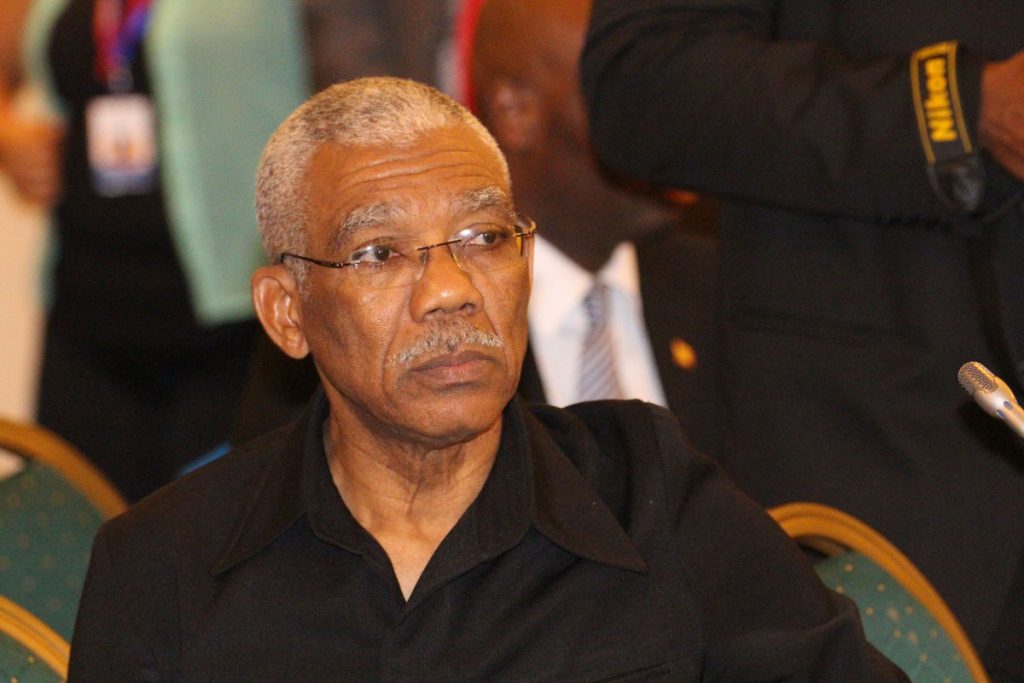(Granger vowed to fulfil Burnham’s legacy. This is that 7-point legacy.)
ROAR for Guyana
First: a single mass party, led by a dictator. While Burnham allowed other parties to exist during his electoral-rigging era, these parties never threatened the PNC’s rule. Guyana became a de-facto one-party state. That is, while other parties were permitted to exist, they were never allowed to compete effectively with the PNC. They merely served to legitimise the PNC’s monopoly of power in the eyes of the international community by providing an opposition. If they ever posed a real threat to the regime, as the WPA did briefly by 1979, then the totalitarian “sharper steel”, in the words of Burnham, was bared, as with Rodney’s assassination. In the same 1980 (not coincidentally) a new Constitution confirmed Burnham’s absolute control over Guyana.
Second: A system of terroristic control. The House of Israel, “Kick down the door” bandits, arbitrary police search and seizures, police informers in every neighbourhood, assassinations, ostentatious marches by the army through apposition strongholds, etc. kept the opposition under control, and the population, especially Indian-Guyanese, in terror. According to Ashton Chase “Among the new recruits (to the Police Force) were persons with criminal records – supposed to give preference to loyalty. It was this element, as well as some ‘rotten eggs’ from this Guyana Defence Force, who were to become “kick down the door” bandits.” Indians responded to the pressure by mass migration. Soon half the country was abroad
Third: a near monopoly control over mass communication and education. The Government’s nationalization of Church Schools, the national radio and newspapers and establishment of the GPSA, in tandem with a harassment of the opposition newspapers through libel suits and bans on newsprint, consummated this imperative to impose a PNC hegemony, over the population. Organizations, such as the Cuffy Ideological Institute and the Guyana National Service were created to explicitly mould the “new” Guyanese.
Fourth: a near monopoly control over the “coercive” apparatus of the state. The Guyana Disciplined Forces – Army, Police Force, Fire Service, National Service, People’s Militia and National Guard Service – were expanded exponentially, staffed with a ninety percent African membership and placed under the command of a Burnham loyalist in 1979. All Officers swore personal loyalty to the leader of the PNC, to provide, along with the similarly constituted Police Force, the coercive basis for the P.N.C.’s rule. PNC members were militarised through the formation of numerous loyal paramilitary organizations such as its youth arm – the Young Socialist Movement and its Women’s arm.
Fifth: the central control and direction of the economy. By the PNC’s boast, they nationalized eighty percent of the economy by 1976. The middle-class P.N.C. elite became the managers and the PNC obtained a powerful device to keep dissent in line. The “party card” and support for the “party line” became prerequisites for obtaining and keeping a job. In Burnham’s words those who were fired, stayed fired.
The co-operative, supposedly the cornerstone of the economy, was the vehicle for rewarding the lower-class African Guyanese supporters. However, when the economy faltered in the late seventies, the co-op concept was the first to be jettisoned and these African-Guyanese also became peripheralised. They now joined the exodus to “foreign”. For those who remained, corruption was institutionalised and became the avenue of relating to, and dealing with the system. Corruption was power and absolute corruption became absolute power.
Sixth: a near monopoly over all civil organizations. Trade Unions, religious organizations, schools, cultural organizations, and social bodies were all either subverted or controlled by the PNC intimidation, by buying off compliant leadership, or by the creation of paper organizations which were given governmental recognition and a place at the Government’s trough. Indian-Guyanese organizations were co-opted through the opportunism of their leadership, to rubber stamp P.N.C.’s policies. These leaders were placed in highly visible, but essentially powerless positions, to create a façade of a “non-racial” Government. Those organizations that refused to “cooperate” were denied similar privileges and ultimately they were miniaturised or became paper organizations with sycophantic P.N.C. shell “executives”.
Seventh: an official ideology. The PNC announced in 1974 that it was a Marxist-Leninist party and was reorganized as the vanguard of the masses. Marxism-Leninism gave the PNC an appropriate vocabulary and methodical postulate for its “innovations” and excesses, and to checkmate the Marxist PPP.
